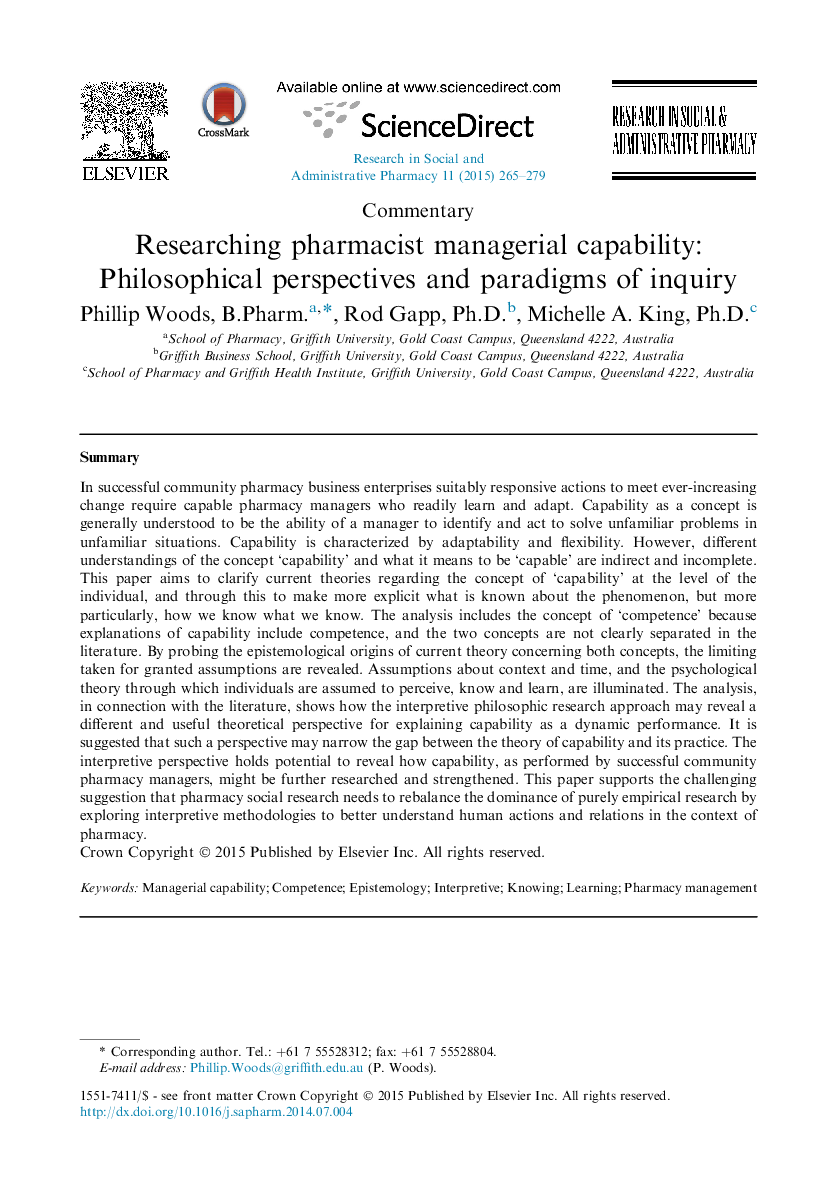| Article ID | Journal | Published Year | Pages | File Type |
|---|---|---|---|---|
| 5821515 | Research in Social and Administrative Pharmacy | 2015 | 15 Pages |
SummaryIn successful community pharmacy business enterprises suitably responsive actions to meet ever-increasing change require capable pharmacy managers who readily learn and adapt. Capability as a concept is generally understood to be the ability of a manager to identify and act to solve unfamiliar problems in unfamiliar situations. Capability is characterized by adaptability and flexibility. However, different understandings of the concept 'capability' and what it means to be 'capable' are indirect and incomplete. This paper aims to clarify current theories regarding the concept of 'capability' at the level of the individual, and through this to make more explicit what is known about the phenomenon, but more particularly, how we know what we know. The analysis includes the concept of 'competence' because explanations of capability include competence, and the two concepts are not clearly separated in the literature. By probing the epistemological origins of current theory concerning both concepts, the limiting taken for granted assumptions are revealed. Assumptions about context and time, and the psychological theory through which individuals are assumed to perceive, know and learn, are illuminated. The analysis, in connection with the literature, shows how the interpretive philosophic research approach may reveal a different and useful theoretical perspective for explaining capability as a dynamic performance. It is suggested that such a perspective may narrow the gap between the theory of capability and its practice. The interpretive perspective holds potential to reveal how capability, as performed by successful community pharmacy managers, might be further researched and strengthened. This paper supports the challenging suggestion that pharmacy social research needs to rebalance the dominance of purely empirical research by exploring interpretive methodologies to better understand human actions and relations in the context of pharmacy.
